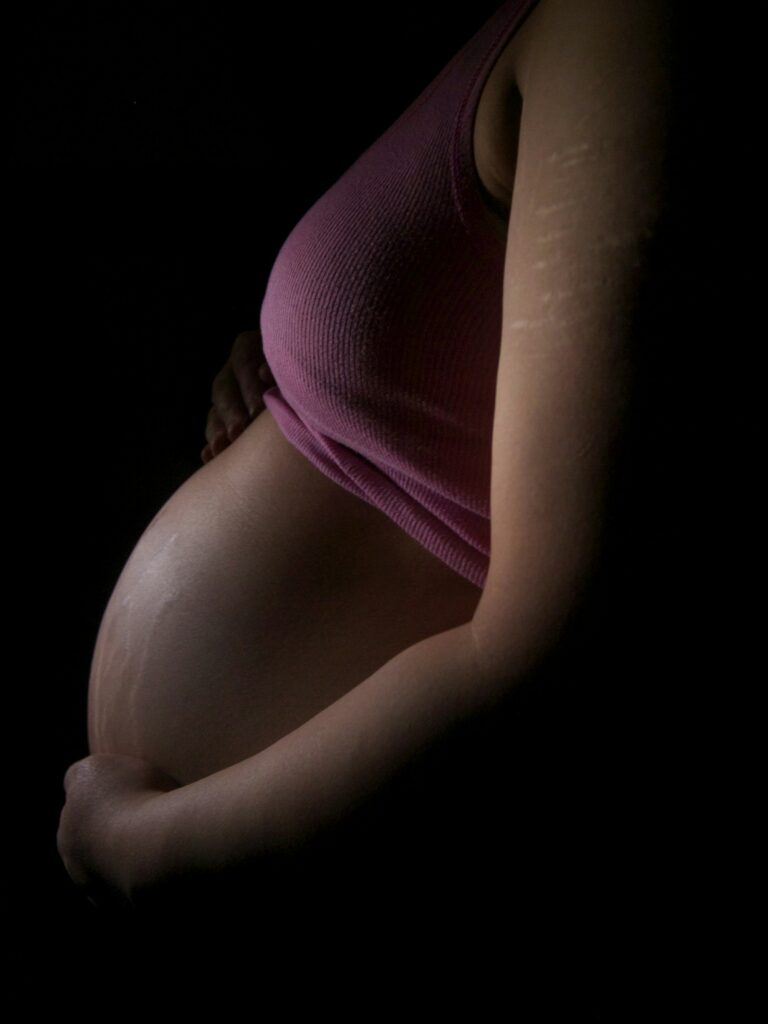Welcoming a little one—an extraordinary moment, but also an upheaval in every sense. The body that grew, protected, and nourished your baby inevitably carries traces of pregnancy, and many mothers begin to wonder: how to approach postpartum weight loss without compromising health? This stage, filled with hope, fatigue, and a thousand tiny joys, also raises a host of questions. Why does the weight seem stubborn for some and fall off for others? Can nutrition and movement tip the balance safely? What if breastfeeding alters metabolism? Juggling sleep deprivation, emotional ups and downs, and family expectations, the path toward postpartum weight loss can feel both bewildering and deeply personal.
Here, you’ll find answers: evidence-based strategies on gradual fat loss, nutrition, realistic expectations, the mysterious role of hormones, and the profound need for self-compassion. You’ll also discover how support—from healthcare professionals to family—makes the difference as you reclaim your well-being.
Postpartum Weight Loss: What to Expect After Delivery
Right after childbirth, something remarkable happens—nearly overnight, you shed between 4.5 and 6 kilos (that’s the combined weight of your baby, placenta, and amniotic fluid). The waistline might shrink, but then comes the slow, deliberate phase: excess fluids are eliminated over the next weeks, and fat reserves—built for pregnancy—start to whittle away bit by bit.
Here are some medical realities: for most, postpartum weight loss is far from instant. By 6 weeks, many new mothers naturally lose about half of their pregnancy weight. Yet, returning to pre-pregnancy weight might take 6 months, even a year—or sometimes longer. The statistical truth? Only about 37% of women achieve full loss within the first half-year. Extended weight retention is not only about the jeans that won’t button, but also plays a role in long-term health risks—predisposing to obesity, type 2 diabetes, cardiovascular issues, and complications in later pregnancies.
Does quick-fix dieting tempt you? Most experts gently warn against it, especially soon after birth. Why? Severe calorie deficits risk nutritional shortfalls. Your body needs nourishment—for healing, energy, and, if breastfeeding, milk production. The scientific consensus: aim for about 0.5-1 kg loss per week, relying on steady, nutritional changes.
Setting realistic, individual goals becomes essential. Healing requires patience; the new balance—between nutrition, movement, sleep, and stress—is as important as any number on the scale.
Main Factors Affecting Postpartum Weight Loss
Why does postpartum weight loss differ so wildly? Let’s break it down:
- Gestational Weight Gain: If pregnancy weight gain exceeded 15-16 kilos, fat storage is greater, dictating slower postpartum weight loss.
- Breastfeeding: For many, exclusively breastfeeding burns an extra 300 to 500 calories per day, aiding fat loss. Yet, results vary—hormonal cascades and metabolic changes mean not every mother will notice a dramatic effect.
- Dietary Choices: The frantic pace of newborn care nudges parents toward energy-dense, nutrient-poor snacks. Balance, variety, and mindful choices, however, set the stage for healthier trajectories.
- Physical Activity: Let’s admit it—movement may plummet when every moment revolves around naps, feeding, and soothing a baby. Gentle activity, even in small bursts, steadily increases metabolic rate.
- Hormonal Shifts: After birth, plummeting estrogen and fluctuating insulin sensitivity alter appetite and fat storage patterns. Genuine hunger cues may feel blurred by exhaustion or stress.
- Sleep and Stress: Fragmented sleep and emotional swings boost cravings, tamper with metabolism, and often diminish motivation for healthy routines.
- Psychosocial Factors: Age, family support, financial access to nutritious foods—all subtly (or not so subtly) impact success.
Scientific evidence encourages a personalised plan: map your context, acknowledge constraints, and adapt strategies accordingly.
Embracing Body Positivity and Supporting Mental Health
As the mirror reflects a body reshaped by pregnancy, a tangle of emotions can emerge. Self-compassion—often overlooked—becomes a psychological anchor. The media’s glossy images of “bouncing back” may feel utterly disconnected from reality. But your body? It’s performed a feat nothing short of miraculous.
Postpartum mood disorders, like depression and anxiety, can subtly undermine efforts at postpartum weight loss—altering eating habits, draining motivation, and compounding sleep issues. Increased cortisol (the stress hormone) isn’t just a mood stealer; it signals fat storage, especially around the midsection.
Look out for signals: persistent sadness, appetite changes, trouble sleeping, feelings of guilt, or difficulties bonding with your baby. Early support—medical, therapeutic, social—does more than ease mood. It boosts recovery, enhances nutritional choices, and supports your baby.
Above all, remember: mental health is healthcare.
Nutrition Strategies for Healthy Weight Loss
After childbirth, nutrition pivots from growth mode to recovery and energy restoration. Forget about rigid restrictions—postpartum weight loss thrives on adequacy, diversity, and pleasure.
- Complex Carbohydrates: Provide long-lasting energy. Think whole grain rotis, brown rice, dal, millets. These sustain blood sugar levels, reducing mid-afternoon energy crashes.
- Healthy Fats: Don’t fear them! Omega-3-rich oils (mustard, canola), a handful of nuts, or a portion of seeds encourage hormone recovery and enhance absorption of fat-soluble vitamins.
- High-Quality Protein: Whether chicken, fish, paneer, lentils, or eggs—protein repairs, promotes satiety, and maintains muscle mass.
- Hydration: Dehydration saps energy and, if breastfeeding, impacts milk flow. Plain water is best; coconut water or caffeine-free herbal teas are good alternatives. Avoid excess sugary drinks; limit fruit juices.
- Fibre: Green vegetables, fruits, whole grains, and legumes build gut health and regulate digestion, preventing the constipation that frequently accompanies early motherhood.
- Mindful Eating: Slow, attentive meals improve satisfaction. Visual appeal matters—colourful plates, a sprinkle of herbs, and taking at least 15 minutes per meal can curb mindless snacking.
Low-calorie diets (<1,500 kcal/day) are risky—risking deficiencies, weakening recovery, and impairing milk production. Medical advice? Eat at regular intervals, choose nutrient-dense foods, deny guilt, and notice satiety signals.
Organising Meal Preparation
Feeding oneself as a new parent? Often bewildering! Efficient planning offsets chaos:
- Batch Cooking: Prepare large quantities of grains and proteins—store for later, mix and match for variety.
- Frozen Veggies: Packed with nutrients, quick to throw into soups, parathas, or sabjis.
- Leftovers are Gold: Don’t hesitate to use last night’s dal or rajma—comfort and goodness in minutes.
- Support Network: Give relatives a mission—nutritious home-cooked contributions are both practical and emotionally supportive.
- Advance Planning: Shopping lists and meal plans simplify decisions during times of exhaustion.
When preparation becomes shared, routines grow sustainable; when fatigue rises, simplicity pays off.
Exercise and Movement After Childbirth
Physical movement post-childbirth—when, how much, and what kind—confuses many. For uncomplicated vaginal births, gentle walking (with your newborn in a pram if you wish) can begin within days. Small steps count: 15 minutes here, a stroll there. Aim—over time—for 30 minutes to an hour per day.
Had a cesarean? Wait for the doctor’s go-ahead—usually four to six weeks later, and only after wound healing and pelvic floor checks. Once cleared, soft options—like cycling, yoga, or swimming—gently awaken strength without straining healing tissues.
Pelvic floor exercises (Kegels), gentle stretching, and postnatal yoga restore core stability, prevent prolapse, and help with urinary control. Steer clear of high-intensity workouts or abdominal crunches until a healthcare provider confirms readiness: the risk of diastasis recti (abdominal muscle gap) is real and should be monitored.
Including your baby—whether during stroller walks or parent-baby yoga—brings benefits for both connection and routine.
Combining Diet and Exercise for Lasting Results
Neither diet nor exercise alone achieves healthy postpartum weight loss—the magic lies in balance. Caloric moderation, rich nutrients, gentle physical activity: combined, these preserve lean body mass and shift metabolism healthfully.
Personalisation remains keystone: adjust to your energy, respect your boundaries. Set micro-goals—like adding a vegetable or walking an extra five minutes. Real progress is cumulative, measured in comfort, strength, and mood as much as kilos lost.
Tracking Progress and Celebrating Milestones
Progress after childbirth is measured in many ways. Sure, a scale can move, but what about the jeans that fit better? The sudden burst of energy? Or the day you walk without aches?
Try keeping a log—track not just weight, but also body measurements, stamina, sleep quality, and mood. Celebrate with non-food rewards: long baths, books, or a walk in the sun. Recognising dedication—no matter how small—builds resilience when the pace feels slow.
Overcoming Challenges and Barriers
Newborn care, sleep deprivation, shifting hormones—these can derail even the best intentions for postpartum weight loss. Some days, self-care feels distant. Sharing responsibilities, asking for help, or simply accepting “good enough” meals ease the load.
When motivation disappears, even brief routines—five minutes of deep breathing, a brisk walk—help anchor healthy habits. Parent support groups, healthcare professionals, and friends share both practical tips and emotional relief.
Sleep and recovery are non-negotiable. Science confirms: lack of sleep amplifies weight retention, disrupts hunger and satiety signals, and increases the urge for sweet, processed comfort foods. Prioritise rest—nap when possible.
The Role of Healthcare and Social Support
Medical professionals—obstetricians, dietitians, physiotherapists—offer not only reassurance but practical, individualised advice for postpartum weight loss. Routine check-ups flag issues like anaemia or thyroid dysfunction and adjust plans for unique health needs.
Family and community resources multiply success. Parent groups, postnatal exercise classes, or even digital health tools can provide both accountability and compassion. Use every tool available: no need for isolation in this journey.
If you search for something tailored, for you or your child, the Heloa app offers personalised guidance and free health questionnaires. A simple download can connect you to expert advice suited to every stage of parenting.
Key Takeaways
- Postpartum weight loss is a gradual journey—expect variation and give yourself time.
- Major influences: pregnancy weight gain, breastfeeding, nutrition, physical activity, sleep, and mental well-being.
- Combining a balanced diet and regular, gentle movement offers the safest, most natural progress.
- Individual plan adjustments—based on health, family support, and lifestyle—yield the best, most lasting results.
- Your medical team is a partner—consult them before major changes.
- Resources are many—lean on family, friends, local health workers, and digital apps like Heloa for tailored progress.
Gradual, mindful steps—anchored in medical wisdom—support not just visible body change, but underpin energy, resilience, and well-being for both you and your child.
Questions Parents Ask
When can I start losing weight after giving birth?
The timeline for starting postpartum weight loss is highly personal. Gentle movement and balance in nutrition are often possible soon after birth, but initiating structured exercise or intentional fat reduction should only be done after consulting your healthcare provider. For many, especially if they have undergone a caesarean or faced medical complications, the recommended waiting period is typically around 4 to 6 weeks. It is reassuring to know—a gradual pace supports better healing and sustained wellness.
Are there any supplements or drinks that help with postpartum weight loss?
Many new parents hope for easy fixes such as powders, herbal teas, or specialized drinks to boost postpartum weight loss. However, the medical recommendation is clear: always seek the advice of your doctor before starting any supplement, particularly in the postpartum period or while breastfeeding. Some products may not be suitable or safe. The most reliable path remains a varied, natural diet and good hydration—plenty of water is often the baseline for healthy recovery.
Is it safe to lose weight while breastfeeding?
A gentle, sustained approach to postpartum weight loss is not only possible but advisable during breastfeeding—provided you consume adequate calories and nutrients to support both milk supply and your own health. Rapid fat loss can sometimes lower lactation and deplete your energy, so incremental changes are recommended. Any concern about milk production or recovery should prompt a quick consultation with your care provider—they will help you balance your goals with your body’s needs.
Further reading:









